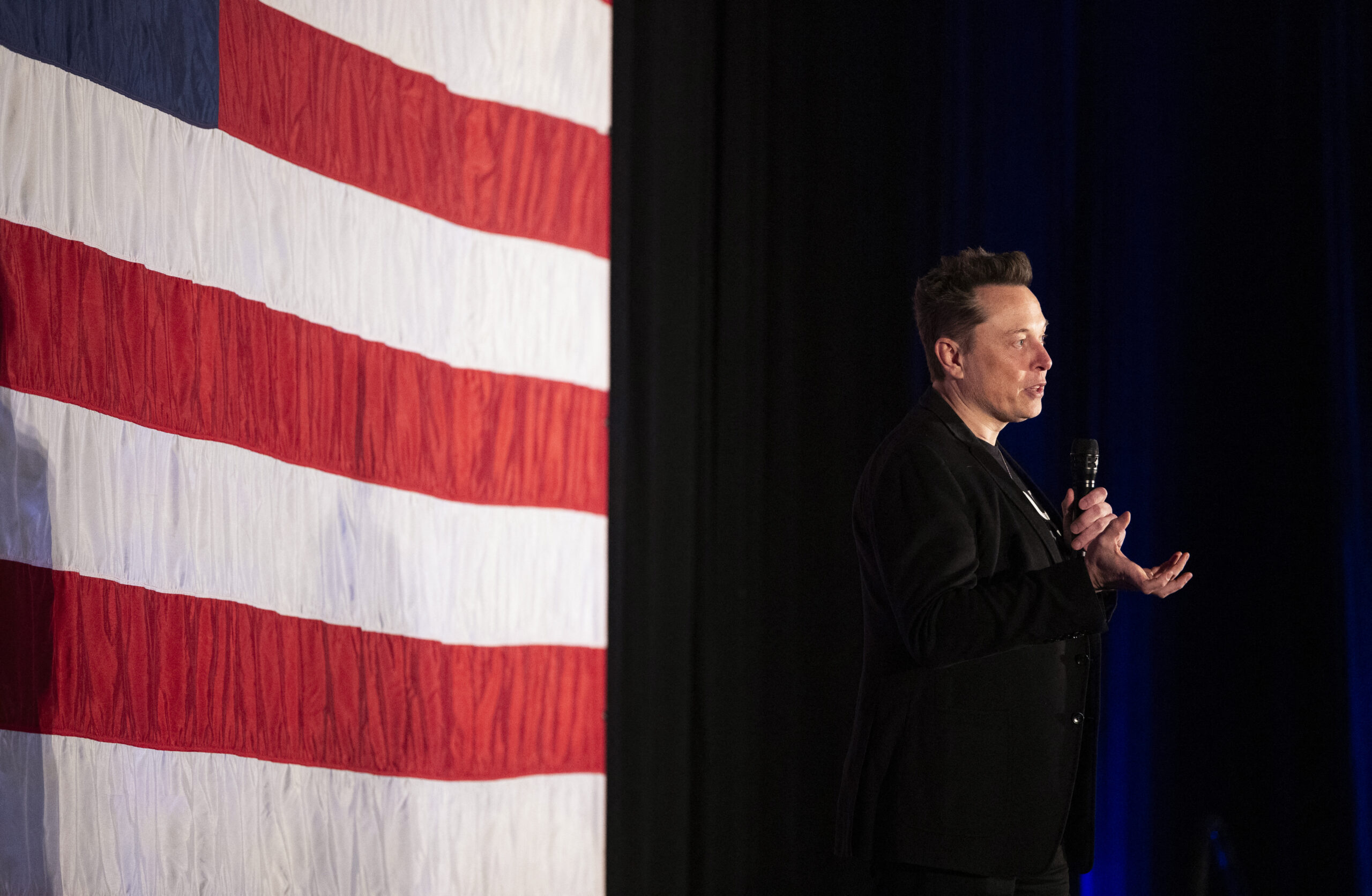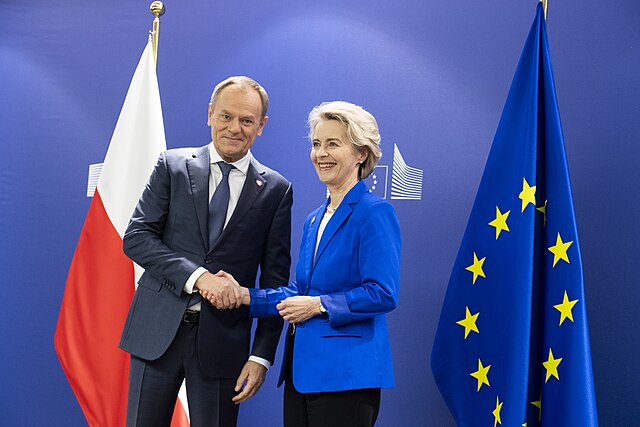Brussels – The European Parliament is ready for its first plenary session of the year, which will open on the day of Donald Trump’s inauguration at the White House. A coincidence that will inevitably be reflected in the work of the Strasbourg hemicycle. The agenda is packed: the holding of the transatlantic relationship, the clash with digital platform giants, the truce reached in Gaza. Donald Tusk, the Polish premier, will present to MEPs the priorities of Poland’s six-month presidency of the EU Council. But the Trump-Musk couple will be the main focus.
On the conduct of the patron of X, the next White House aide, the EU Parliament is likely to turn into a powder keg. A taste of it has already been seen in the choice of the title of the debate on the implementation of the EU law on digital services, scheduled for Tuesday morning (Jan. 21): the People’s Party (EPP), along with Conservatives (ECR), Patriots (PfE) and Sovereignists (ESN), have put their foot down and forced the removal of any direct mention of Elon Musk, renaming the appointment “Need to enforce the Digital Services Act to protect democracy on social media platforms, including against foreign interference and distorted algorithms.”

The political groups could not be further apart: suffice it to say that, while over forty MEPs from Patriots, Sovereignists, and Conservatives co-signed a letter to Roberta Metsola asking her to invite the American tycoon to speak to the EU hemicycle because his “extraordinary achievements and visionary approach could bring the EU back to being a hub of creativity,” a group of fellow Socialists (S&D) and liberals (Renew) have written to Ursula von der Leyen to express “deep concern about the interference perpetrated by Elon Musk, particularly in the German election campaign and, previously, in Ireland” and to call for action.
A polarization that will remain very much in evidence in the other important debate looking overseas, the one on the possible geopolitical and economic consequences of the Trump administration on relations between Brussels and Washington. Indeed, the three rightmost groups in the hemicycle—ECR, PfE and ESN—have confirmed that one of their delegations will be present at the new president’s inauguration ceremony, while Popular and Socialists have not received invitations from the New York tycoon. Some concern about Trump’s unpredictability actually hovers in the family of European conservatives as well: according to Pietro Fiocchi, MEP for Fratelli d’Italia, “We are in for a scary few months, depending on the decisions and approach of the U.S. government,” particularly on trade and defence.

The Trump-Musk pair will inevitably dominate the scene, overshadowing the other protagonist of the upcoming plenary session of the European Parliament: the prime minister of Poland, Donald Tusk, who will be in the hemicycle —together with the President of the European Commission, Ursula von der Leyen —to present the priorities of Poland’s six-month presidency of the EU Council. A semester whose slogan, “Security, Europe!” is emblematic of Warsaw’s chosen agenda. Even Europeanist Tusk, an influential figure in the European People’s Party, will not have an easy time in the chamber: While on one side, ECR’s newly appointed president, his rival Mateusz Morawiecki, openly accuses him of censorship at home and will unleash his troop of MEPs against him, on the other, Warsaw’s very hard punch against immigration (in October Tusk announced the suspension of asylum rights in the country to deal with the instrumentalization of migrants by Russia and Belarus) has not gone down well with the left wing of the EU Parliament.
With von der Leyen and the President of the European Council, António Costa, MEPs will instead discuss the conclusions of the December summit of the heads of state and government of the 27. The other issue, which has entered the plenary session’s agenda with force, is the agreement between Israel and Hamas for a ceasefire in Gaza. MEPs will discuss it as early as Monday afternoon in a debate—still without a resolution—titled “Gaza: preparing the post-war future.” The most significant votes will be on the other foreign policy issues: the crackdown by the Lukashenko regime in Belarus ahead of the January 26 mock elections, the violence against the pro-European opposition in Georgia, and the illegitimate reinstallation of Nicolas Maduro as head of Venezuela.
In the debates on the Digital Services Act and that on the European Council in December, the EU Parliament will experiment with new rules to curb absenteeism during chamber proceedings: that is, it will not circulate the list of speakers in advance so that MEPs will be forced to stay in the chamber waiting for their time to speak.
English version by the Translation Service of Withub







